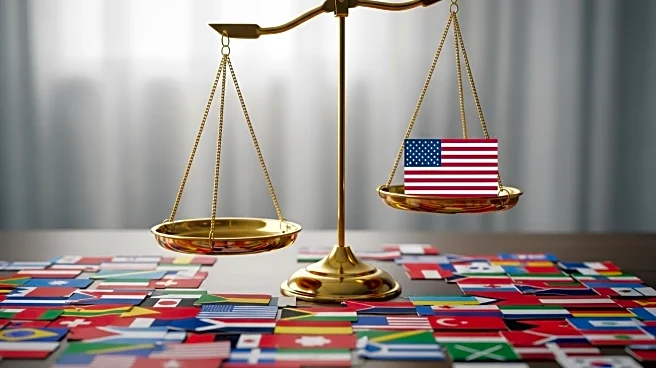What is the story about?
What's Happening?
A federal appeals court has ruled that President Trump's reciprocal tariffs, which were imposed on nearly every country, are illegal. The U.S. Court of Appeals for the Federal Circuit determined that Trump exceeded his presidential authority with these tariffs, which were part of his April 2 'liberation day' announcement. Initially, these tariffs were set to affect approximately 69% of U.S. goods imports, but the court's decision reduces this impact to about 16%. This ruling represents a significant setback for Trump's aggressive trade agenda, which aimed to leverage tariffs as a tool for negotiating better trade deals.
Why It's Important?
The court's decision has substantial implications for U.S. trade policy and international relations. By voiding most of Trump's tariffs, the ruling may ease tensions with trading partners and potentially lead to more stable trade relations. U.S. industries that rely on imported goods could benefit from reduced costs, potentially lowering prices for consumers. However, the ruling also challenges the executive branch's ability to unilaterally impose tariffs, which could influence future administrations' trade strategies. Stakeholders in industries affected by tariffs, such as manufacturing and agriculture, will closely monitor the economic impacts of this decision.
What's Next?
Following the court's ruling, there may be legal and political responses from the Trump administration, including potential appeals or adjustments to trade policy. Businesses and trade groups affected by the tariffs will likely seek clarity on the ruling's implications for their operations. Additionally, Congress may consider legislative measures to address the balance of trade authority between the executive and legislative branches. Internationally, trading partners may respond by reassessing their trade strategies with the U.S., potentially leading to new negotiations or agreements.
















